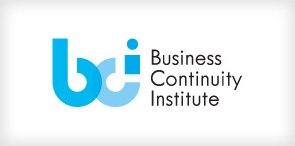The Business Continuity Institute: A Comprehensive Guide to Ensuring Organizational Resilience
Introduction
The Business Continuity Institute (BCI) is a globally recognized professional organization dedicated to promoting and advancing the practice of business continuity and resilience. With members across various industries and regions, the BCI plays a crucial role in shaping the standards, education, and professional development of those involved in ensuring the continuity of business operations during and after disruptive events. This article delves into the history, mission, and key offerings of the Business Continuity Institute, highlighting its importance in today’s increasingly complex and uncertain business environment.
History and Mission of the Business Continuity Institute
Founding and Evolution
The Business Continuity Institute was founded in 1994 in the United Kingdom with the goal of establishing a professional community for individuals responsible for business continuity planning (BCP). Since its inception, the BCI has grown into a global leader in the field, with thousands of members in over 100 countries. The institute has been instrumental in defining the standards and best practices that guide organizations in building resilience and ensuring they can continue to operate under adverse conditions.
Mission and Vision
The BCI’s mission is to promote a resilient world by fostering the growth and development of business continuity and resilience professionals. The institute aims to achieve this through education, certification, research, and advocacy. Its vision is to ensure that business continuity and resilience are embedded within the fabric of every organization, helping to safeguard businesses, employees, and communities from the impacts of disruptions.
Key Offerings of the Business Continuity Institute
- Professional Certification and Training
One of the primary functions of the BCI is to offer certification and training programs that equip professionals with the skills and knowledge needed to excel in business continuity and resilience roles.
Certification Levels
The BCI offers several levels of certification, each catering to different stages of a professional’s career:
Certificate of the BCI (CBCI): This entry-level certification provides a solid foundation in business continuity principles and is ideal for individuals new to the field or those seeking to formalize their experience.
Associate Member of the BCI (AMBCI): A step above the CBCI, this certification is for professionals who have demonstrated their understanding of business continuity management (BCM) through practical experience and additional training.
Member of the BCI (MBCI): This certification is awarded to professionals with significant experience in business continuity, who have also contributed to the field through leadership, research, or mentoring.
Fellow of the BCI (FBCI): The highest level of certification, FBCI is reserved for individuals who have made a substantial impact on the business continuity profession and have at least ten years of experience in the field.
Training Programs
The BCI offers a range of training courses that cater to different aspects of business continuity and resilience, including:
Business Continuity Management (BCM) Training: Covering the BCM lifecycle, from risk assessment to plan development and testing.
Crisis Management: Focused on preparing organizations to respond effectively to crises and emergencies.
Supply Chain Resilience: Training on how to manage and mitigate risks in the supply chain to ensure continuity of operations.
IT Disaster Recovery: Specialized training on protecting and recovering critical IT systems and data following a disruption.
- Knowledge Resources and Research
The Business Continuity Institute is a leading source of knowledge and research on business continuity, resilience, and related fields. The institute produces a variety of resources to help professionals stay informed and up-to-date on the latest trends and best practices.
Publications
The BCI publishes several reports, white papers, and journals that provide insights into the state of the industry, emerging risks, and innovative solutions. Notable publications include:
The BCI Horizon Scan Report: An annual report that identifies and analyzes the top risks and trends impacting business continuity professionals.
The BCI Supply Chain Resilience Report: This report examines the vulnerabilities within global supply chains and offers strategies for enhancing resilience.
Continuity & Resilience Magazine: A quarterly publication featuring articles, case studies, and interviews with leading experts in the field.
Research and Thought Leadership
In addition to publications, the BCI conducts research initiatives that contribute to the advancement of business continuity and resilience practices. The institute collaborates with academic institutions, industry bodies, and government agencies to produce research that addresses critical challenges and opportunities within the field.
- Networking and Professional Development
The BCI provides numerous opportunities for networking and professional development, helping members to build connections, share knowledge, and advance their careers.
Conferences and Events
The BCI hosts several conferences, seminars, and webinars throughout the year, where professionals can learn from industry leaders, engage in discussions, and explore new ideas. The most notable event is the BCI World Conference, an annual gathering that brings together experts from around the globe to discuss the latest developments in business continuity and resilience.
BCI Chapters and Forums
The institute has established regional chapters and special interest groups (SIGs) that allow members to connect with peers in their local area or within specific industries. These groups provide a platform for members to exchange ideas, collaborate on projects, and gain insights into region-specific challenges and solutions.
Mentoring and Volunteering
The BCI offers mentoring programs where experienced professionals can guide and support newcomers to the field. Additionally, members can volunteer for various roles within the institute, such as serving on committees, contributing to research projects, or participating in advocacy efforts.
- Advocacy and Standards Development
The Business Continuity Institute plays a key role in advocating for the importance of business continuity and resilience at both the organizational and governmental levels. The institute collaborates with international standards bodies, such as the International Organization for Standardization (ISO), to develop and promote global standards that enhance the practice of business continuity.
Influencing Policy and Regulation
The BCI works with policymakers and regulators to ensure that business continuity and resilience are integrated into relevant laws, regulations, and guidelines. This advocacy helps to create a supportive environment for organizations to implement effective BCM practices.
Contribution to Global Standards
The BCI has contributed to the development of important standards, including ISO 22301:2019, the international standard for business continuity management systems. By participating in standards development, the BCI ensures that its members have access to best practices that are recognized and respected worldwide.
The Importance of Business Continuity and the BCI’s Role
In today’s globalized and interconnected world, organizations face a myriad of risks that can disrupt operations, from natural disasters and cyberattacks to supply chain disruptions and pandemics. Business continuity planning is essential for ensuring that organizations can withstand and recover from these challenges, minimizing the impact on their operations, employees, and customers.
Organizational Resilience
Business continuity is a critical component of organizational resilience, which is the ability of an organization to adapt to changing conditions and recover quickly from disruptions. The BCI’s work in promoting best practices, providing education and certification, and advocating for the integration of business continuity into organizational strategies has made it a cornerstone of the global resilience community.
Supporting Global Resilience
By supporting the development of skilled professionals, setting high standards, and fostering a culture of resilience, the Business Continuity Institute helps organizations around the world protect their people, assets, and operations from unforeseen events. This not only benefits individual organizations but also contributes to the stability and resilience of global economies and societies.
Conclusion
The Business Continuity Institute is a vital resource for professionals dedicated to ensuring the resilience of organizations in the face of disruption. Through its certification programs, knowledge resources, networking opportunities, and advocacy efforts, the BCI empowers individuals and organizations to build robust business continuity strategies that safeguard against risks and promote long-term success. As the importance of resilience continues to grow in an increasingly uncertain world, the BCI remains at the forefront of driving excellence in business continuity management.




